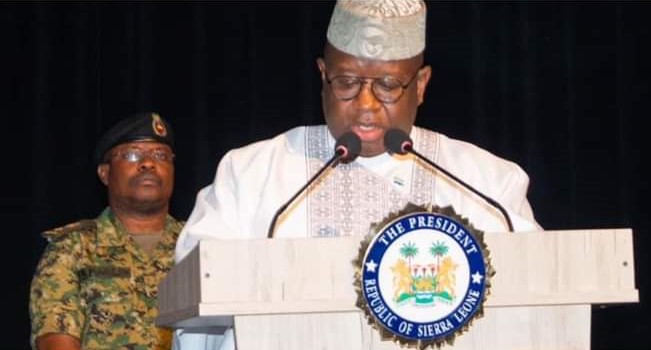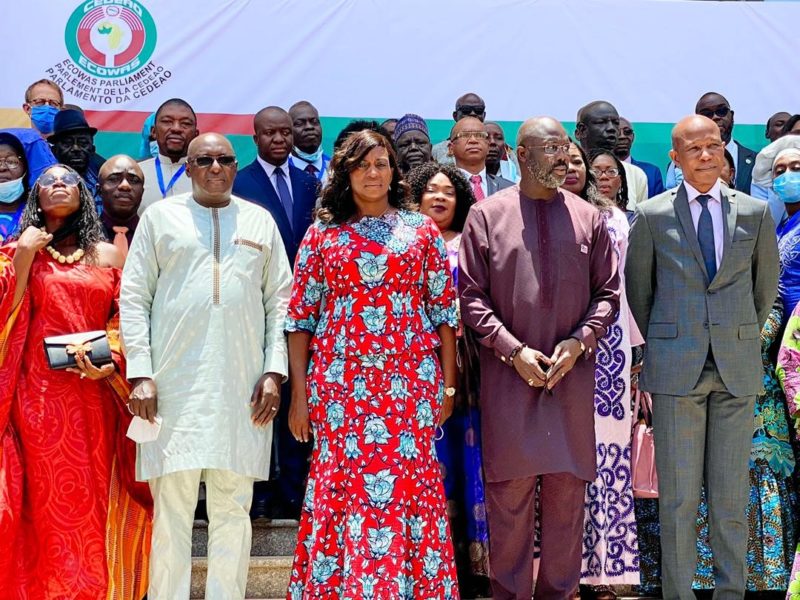West African Civil Society considers new strategy to address critical challenges
West Africa civil society leaders from across ECOWAS member States and Cameroon met in Accra, Ghana, from 29 to 30 May 2013 in a planning meeting towards the organization of a major Regional Annual Convening starting this year. The annual convening, jointly organized by the West African Civil Society Institute (WACSI) and the West African Civil Society Forum (WACSOF), is meant to create a permanent platform where the regional civil society constituency, in all its heterogeneity, comes together to develop an agenda for action towards addressing the multifarious challenges confronted with in the region. This new peoples’ oriented agenda is hinged upon one core leitmotiv: working constructively with States and governments towards the attainment of a West Africa where peace, economic integration and human development become a reality.
The rationale behind the organization of this civil society meeting was informed by a situational analysis of key challenges facing West Africa today. The failure of governments to provide for basic services for the welfare of people has spawned the crumbling of social cohesion and the deterioration of our social fabric at a time in which the state is losing control of the monopoly of the use of force. Guaranteeing the security of citizens has become a major challenge to most of the West Africa States in crisis. Cashing in on the vacuum, new forces are emerging, leading to the exacerbation of the crises. These include fundamentalist groups challenging the sovereignty and territorial integrity of certain states through insurgency, narco-traffickers colluding with elements in power to take over certain states, and political entrepreneurs promoting a crisis over citizenship that excludes parts of the community. This situation is fuelled by the abuse of the powers of incumbency by many political leaders engaged in mega corruption and seeking to imbue their rule with monarchical powers. West African civil society must therefore rise to create a path towards political renewal and the deepening of democracy.
Emerging challenges against national sovereignty, territorial integrity, the porosity of national borders, drug and human trafficking, religious fundamentalism and insurgent terrorism have been plaguing Mali. To add insult to injury, the upcoming presidential and legislative elections are now compromised by insecurity, especially in some areas of North Mali that are still under the control of insurgents. West Africa civil society expresses its strong reservations against a premature organization of the elections, as the crisis is still lingering on despite freed and reclaimed areas. In the event that these elections do take place prematurely, West Africa civil society charges African nations and the international community to exercise sustained vigilance on the election process, and take their responsibility if the situation in Mali worsens.
The security situation in Nigeria continues to deteriorate in the face of the prolonged armed insurgency in its North-east region. Prospects for resolution are gloomy as the government persists on its adoption of a hard-line counter-insurgency response to an undefined crisis that has degenerated to gross human rights abuses by state security agents and militants alike. Nigeria’s 2015 elections may be in jeopardy if the crisis is not solved soon.
Niger has become a high risk country, as it shares borders with countries that are in deep crises, namely Libya, Mali and Nigeria. West African civil society calls on the international community and ECOWAS member States to consider all alternatives so that Niger does not turn into a spring board for international terrorism and wholesale illicit activity which will worsen the security situation and compromise the territorial integrity of countries in the region.
The complex crisis in Guinea Bissau has been further compounded by the fact that UN, the EU, the ECOWAS, and the community of Lusophone countries are yet to come up with a shared vision for the resolution of the crisis. The conundrum generated, therefore, has considerably jeopardized any likelihood of stability and any prospect of preventing the State’s collapse.
In Guinea Conakry, legislative elections have not been held since 2011 when the president took office. This tense situation has led to mounting cynicism, mistrust and a growing violent clashes at a time when consensus has not been reached around the modalities for the preparation of the elections, the composition and functioning of the national election commission, but also around the date of the election on which elections are to be held. Due to the high potential of exacerbated social unrest, West African civil society recognizes the urgency of political intervention under the leadership of ECOWAS as a necessity to the worsening of the crisis in Guinea.
Togo has been weaned from much needed election reforms since 2007. No legislative election has been held since because of the lack of political will to provide an environment that is propitious to consultation between the ruling party and the opposition. This is perceived as being part and parcel of a political machination to thwart any prospect for the organization of elections that are inclusive, free, fair and transparent. West Africa civil society has noted the growing incidents of harassment, incarceration of opposition political leaders, especially those who have been upfront about alleged manipulations towards extending the presidential tenure to a third term. West African civil society condemns the unwillingness of the Togolese president to engage in dialogue with the opposition. Once again, we call on ECOWAS to intervene in the situation.
Civil society is itself facing serious internal challenges. These include low capacity to fully carry out our mandate, recognition of respect from our own governments, and availability of financial resources. The time has come for us to re-strategize on these fundamental issues. The convening will be an opportunity to map out a people’s agenda on the way forward. The theme for the proposed convening of the West African civil society annual convening this year is THE ROLE OF CIVIL SOCIETY IN ADDRESSING CRITICAL CHALLENGES FACING WEST AFRICA.
The meeting will set the stage for the development of an innovative and strategic approach to engage with governments in the region in a bid to achieving the ECOWAS Vision 2020 of transitioning from an ECOWAS of Nation States to one of peoples. The Convening will, therefore, provide a unique forum where regional and national leaders will consult with the West African civil society leaders in a bid to usher in a people oriented agenda. Based on deliberations and recommendations made at the Accra meeting, the Annual West Africa Civil Society Convening this year will strategize and deploy action plans towards reversing the multiple political and security challenges resulting from the increasing erosion of the democratic order and the crisis of governance which bedevil the West African region. Exploring windows of opportunity for creating an enabling environment conducive to the amplification of voices of civil society by occupying the space to engage governments towards the entrenchment of a participative, inclusive and transparent mode of governance, sharing value addition ideas and best practices, and improving networking with key stakeholders and partners were identified at the meeting as key elements that will be deliberated upon at the upcoming Annual West Africa Civil Society Convening.
Accra, Ghana, 30 May 2013
SIGNATORIES:
ABANTU for Women’s Development, Ghana Centre for Coordination of Youth Activities (CCYA), Sierra Leone Centre for democracy and Development (CDD) West Africa, Nigeria Civil Resource Development and Documentation Centre (CIRDDOC, Nigeria Justice and Peace Commission (JPC), Cameroun Leadership, Ethics, Governance and Strategy organisation (LEGS), Regional Org./ Senegal Media Foundation for West Africa (MFWA), Ghana Network Movement for Justice and Development (NMJD), Sierra Leone North West Association of Development Organisations (NWADO), Cameroon Rencontre Africaine Pour la Defense des Droits de l’Homme (RADDHO), Regional org./Senegal Réseau des Plateformes nationales d’ONG d’Afrique de l’ouest et du Centre (REPAOC), Regional Org./Senegal The-Association-of-Non-Governmental-Organisation (TANGO), The Gambia West Africa Civil Society Institute (WACSI), Ghana West Africa Civil Society Forum (WACSOF), Regional Org./Nigeria West Africa Network for Peacebuilding (WANEP) Nigeria Regional org. / Nigeria West Africa Network for Peace building (WANEP West Africa), Ghana Women in Law and Development in Africa (WILDAF) West Africa, Regional Org./TogoWACSI
Stay with Sierra Express Media, for your trusted place in news!
© 2013, https:. All rights reserved.






